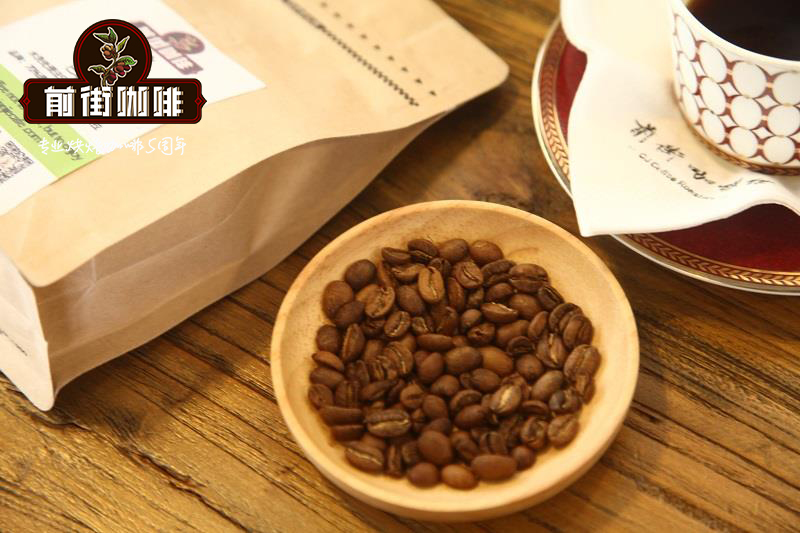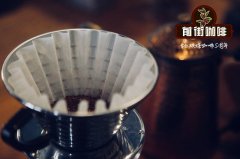Organic coffee beans cultivation characteristics_The impact of organic certification on coffee price quality flavor characteristics

Professional coffee knowledge exchange more coffee bean information please follow the coffee workshop (Wechat official account cafe_style)
One of the most emphasized concepts in boutique coffee is one thing that ordinary commercial-grade coffee does not have, that is, traceability.
But with the rise of moral consumerism, more and more customers, including bakers and consumers, not only require traceability, but also begin to pay more attention to the organic certification of coffee beans.
What exactly is organic coffee? Does organic coffee taste better? Here we will give you a detailed answer.
What does ● "organic coffee" stand for?
The simplest answer is that organic coffee is produced without the use of synthetic fertilizers, pesticides, or pesticides. The fertilizer used in Cannons must be 100% organic fertilizer, such as chicken manure, peeled coffee pulp, fermented compost, etc. If the fertilizer contains synthetic nitrogen, phosphate, or potassium salt, the grown coffee will not be considered organic and will not be certified as organic.
Time is another factor to consider. Farms must undergo all-natural organic farming (100% organic fertilizers and pesticides) for at least three consecutive years to officially enter true organic agriculture in order to ensure that crops are not exposed to any residual chemicals. This also means that farms need a sustainable crop rotation program to prevent soil erosion, depletion of nutrients, and natural elimination of pests.
Finally, coffee should not be exposed to any chemicals in the process of handling and packaging.
What is the difference between ● organic certification and Fairtrade certification?
That's a good question. The central idea of fair trade is to reduce poverty through the equalization of international trade, which has nothing to do with organic in theory. But it is said that more than 80% of Fairtrade coffee is organically grown.
The reason is that most Fairtrade coffee is grown on independent small farms. These farmers do not have enough money to afford expensive commercial pesticides, so when they have no choice, they use natural fertilizers and pesticides locally, which essentially meets the conditions of organic agriculture.
According to the Ethiopian boutique coffee association, although locally produced coffee is rarely officially certified organically, 95% of coffee is actually organic. We think 95% may be a bit overrated, but there is no denying that a lot of coffee without organic certification is actually grown organically.
It is important to note that a coffee certified as organic does not mean that the working environment of the workers who produce the coffee is guaranteed, or that farmers can automatically get a minimum price guarantee that they can get rich suddenly.
What's so special about growing ● organic coffee?
Organic coffee needs to be grown in the shade of trees. If there is no thick leaf shade, the sun can easily burn the soil and dry up the nutrients, which will require the use of large amounts of non-organic fertilizers to restore nutrients. In addition, when farmers retain native trees, they not only provide shade, but also have a positive effect on biodiversity.
The organic planting process is very different from the traditional commercial coffee planting. Commercial coffee relies on sun exposure, which helps coffee mature quickly, so it often has to cut down a lot of trees, free up large tracts of land to grow coffee in direct sunlight, and rely on synthetic fertilizers to keep the soil nutritious. On the contrary, organic coffee cultivation is a long and long process.
Where does ● organic coffee come from?
According to the Costa Rican Center for Tropical Agricultural Research and higher Education, about 75% of the world's organic coffee comes from Latin America. As of 2010, Peru was the leading exporter of organic coffee, exporting 423000 bags (more than 25000 metric tons) of organic beans in 2010 alone. Other exporters include Honduras, Mexico, Brazil, Colombia, El Salvador and Guatemala. Some Asian and African countries, such as Indonesia and Ethiopia, also produce organic coffee.
What is the impact of ● organic certification on the price, quality, and flavor of coffee?
Compared with the price of non-organic coffee producers, coffee producers who have successfully won the recognition of organic certification will receive a premium of about 500 pounds per tonne. The £500 premium is clearly an indispensable subsidy for organic producers because of the time-consuming and other constraints of the organic farming process, which have greatly increased production costs. At the same time, the incentive for this economy is to encourage more producers to adopt organic planting.
As for the quality of coffee, it always depends on many different factors, including coffee variety, soil quality, altitude, rainfall, harvesting and processing techniques, freshness, water quality, and the overall cleanliness of processing equipment.
In the process of coffee production, with or without the help of chemicals, it has little effect on the final flavor and characteristics of coffee beans, but it is very important for the sustainability of coffee. We at DRW have been striving to support research and initiatives on sustainability as much as possible. After all, organic farming is the only way for the long-term sustainability of crops. Recently, we are honored to be shortlisted for the Guardian's Sustainable Business Award. "
● we choose to work with producers who are careful or even picky about the cultivation and production of beans.
When it comes to coffee, we absolutely agree with the Prince of Wales, his Royal Highness Prince Charles in a speech from the British soil Association: "Organic agriculture can provide the highest quality and most delicious food without the use of man-made chemicals or genetically modified technologies, and respect animal welfare and the environment, while helping to preserve the landscape and rural communities."
Qianjie coffee: Guangzhou bakery, the store is small but a variety of beans, you can find a variety of unknown beans, but also provide online store services. Https://shop104210103.taobao.com
Important Notice :
前街咖啡 FrontStreet Coffee has moved to new addredd:
FrontStreet Coffee Address: 315,Donghua East Road,GuangZhou
Tel:020 38364473
- Prev

Introduction to the cultivation of Organic Coffee in Peru, the Pioneer of Organic Coffee
Professional coffee knowledge exchange more coffee bean information please follow the coffee workshop (Wechat official account cafe_style) Peru is located in western South America, bordering the South Pacific, between Chile and Ecuador. Peru has a very diverse climate, from the tropics in the east to the dry deserts in the west, and from the temperate zone to the cold of the Andes. Different climates are tight with the main geographical areas of Peru
- Next

The Development of Organic Coffee: how is Organic Coffee? why do some people buy Organic Coffee beans at High prices
Professional coffee knowledge exchange more information about coffee beans Please follow the coffee workshop (Wechat official account cafe_style) organic coffee, which is produced by organic farming. To understand organic coffee, one must first understand the concept of organic farming (organic farming), which originated in 1924. In 1924, a group of farmers who were concerned about the future of agriculture turned to Germany at that time.
Related
- Guji coffee producing area of Guji, Ethiopia: Humbela, Shakiso, Wulaga
- What is the most expensive variety of Qiloso in BOP multi-variety group?
- How to store the coffee beans bought home?
- Why are Yemeni coffee beans so rare now?
- Ethiopian Sidamo all Red Fruit Sun Sun Santa Vini Coffee beans
- SOE is mostly sour? What does it mean? Is it a single bean? what's the difference between it and Italian blending?
- Is Italian coffee beans suitable for making hand-brewed coffee?
- How to choose coffee beans when making cold coffee? What kind of coffee beans are suitable for making cold coffee?
- Just entered the pit to make coffee, what kind of coffee beans should be chosen?
- Can only Japan buy real Blue Mountain Coffee? What are authentic Jamaican Blue Mountain coffee beans?

